¡Saludos a todos! Hoy me gustaría comentar un tema que hoy en día es muy común entre nosotros, ya sea que nos pase directamente en la familia o a algunos amigos o vecinos, en general personal allegadas, me refiero a la migración. La pregunta es ¿Cómo afecta la migración a nuestros niños? Acompáñenme y les cuento mi experiencia como madre.
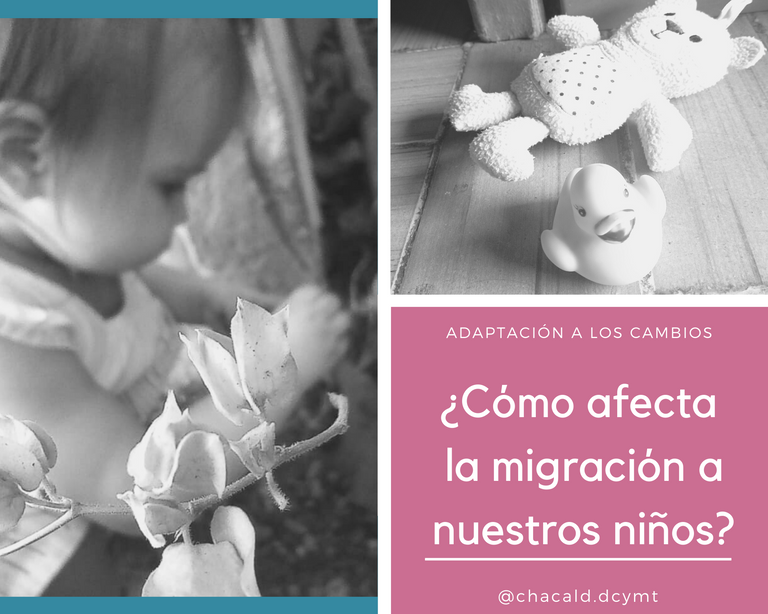
Hace 3 meses decidimos, mi esposo y yo,mudarnos a Venezuela, mi país, desde Cuba país donde teníamos viviendo juntos 5 años y donde nació nuestra pequeña hija. El 20 de enero viajé yo sola con la bebé de 16 meses y él tubo que quedarse por cuestiones de trabajo. Para ese entonces la niña ya presentaba algunas alteraciones en su conducta habitual, pues salimos de la casa desde el día 8 de enero y nos quedamos en la Habana durante todos esos días mientras hacíamos los trámites para el viaje.
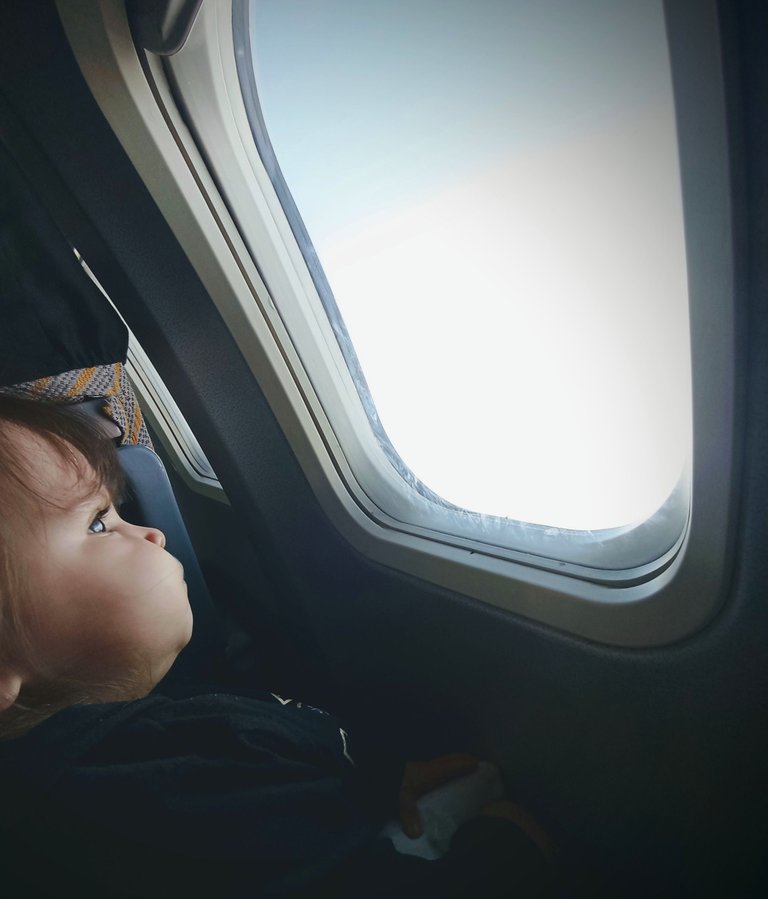
Al llegar a mi país la niña comenzó a tener una conducta irritable, por cualquier cosa que se le negaba o se le terminaba su reacción era de *rabia. Presentó perdida del apetito, ella nunca había rechazado ningún alimento, al contrario le gustaba comer de todo que siempre la pediatra me decía que era una madre afortunada por no tener esos problemas de la alimentación de la niña. Comenzó a dormir más de lo normal, tomaba siestas largas en la mañan ay en la tarde, pasaba más tiempo dormida que despierta.
Todo esto nos estaba preocupando mucho a mi mamá y a mí que eramos las que estabamos a cargo de la niña. Sobre todo la falta de apetito.

La pediatra nos dijo que esto es el duelo migratorio, muchas veces escuchamos la palabra duelo y pensamos inmediatamente en la muerte, pero no es así, el duelo es sinónimo de pérdida y cuando pasamos por el proceso de migración debemos adaptarnos a los cambios. En el caso de mi bebé extrañaba mucho a su papá que no se había separado de ella desde que nació ya que había pedido una licencia en su trabajo para cuidarnos a ambas y hasta ese momento ella solamente vivía con su papá y su mamá en su casa, lo que le estaba provocando todas estas alteraciones.
Cuando su papá llegó a Venezuela y pudimos reunirnos en casa, eso fue hace 15 días, la niña hizo rechazo hacia él, lloraba cuando se le acercaba y no podía ni estar en el la misma habitación que él. Se veía emocionada porque su papá estaba en casa pero de lejos. Lo bueno fue que empezó a comer de nuevo y dejó de tener estos episodios de rabia. Poco a poco se ha ido acercando a jugar con su papá, a cantar y a dormirse con él como meses atrás.
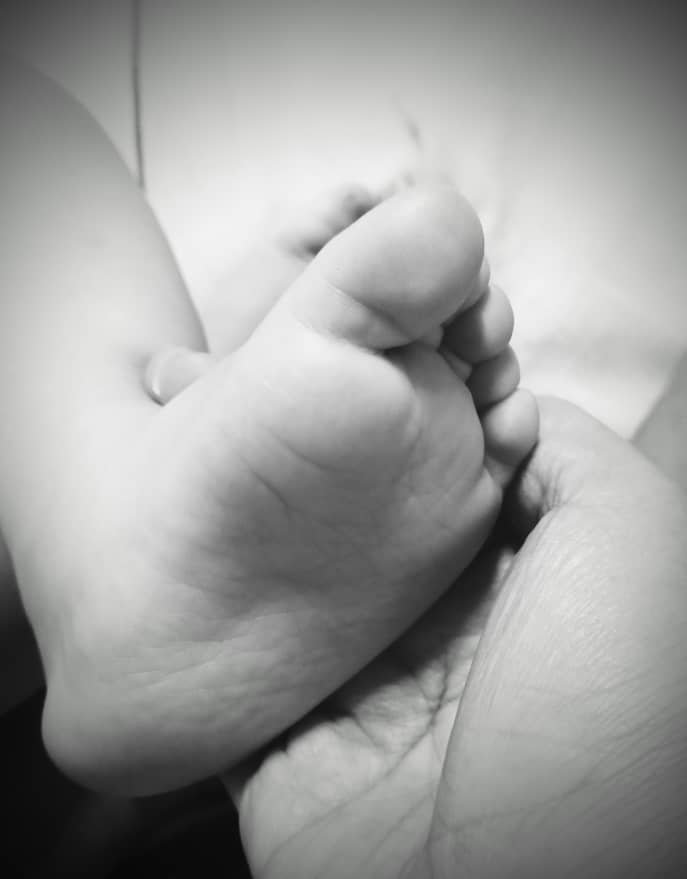
Investigando un poco más allá de lo que nos dijo la pediatra, encontré que la UNICEF ha establecido puntos de control médico en las rutas migratorias más importantes para brindar atención psicológica a los niños, niñas y adolescentes que están pasando por un proceso migratorio, ya sea solos, en familia o también los niños que deben quedarse con algún cuidador mientras sus padres emigran. Es importante que estemos atentos a nuestros pequeños,si conocemos algún caso debemos acudir a un pediatra para que refiera al niño a un psicólogo infantil y pueda ayudarle a superar este proceso.
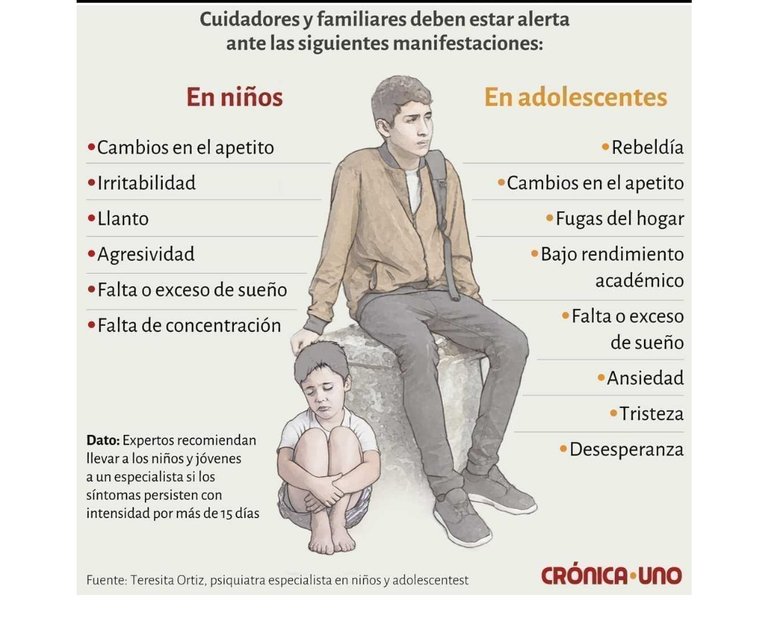
No podemos dejar que nuestros niños se pierdan en este proceso de adaptación. Mi recomendación es que si la familia esta pasando por una migración o está en planes de ello no olviden a los niños, tomemos en cuenta sus sentimientos y emociones y los bebés que no pueden expresar lo que sienten requieren una atención especial. Pensemos que si es difícil para nosotros como adultos para los niños también debe ser difícil todos estos cambios radicales. Espero que les guste mi publicación y queda abierto el debate en los comentarios. Saludos y hasta la próxima oportunidad.

Greetings to all! Today I would like to comment on a topic that today is very common among us, whether it happens directly to us in the family or to some friends or neighbors, in general to close people, I am referring to migration. The question is, how does migration affect our children? Join me and I will tell you my experience as a mother.
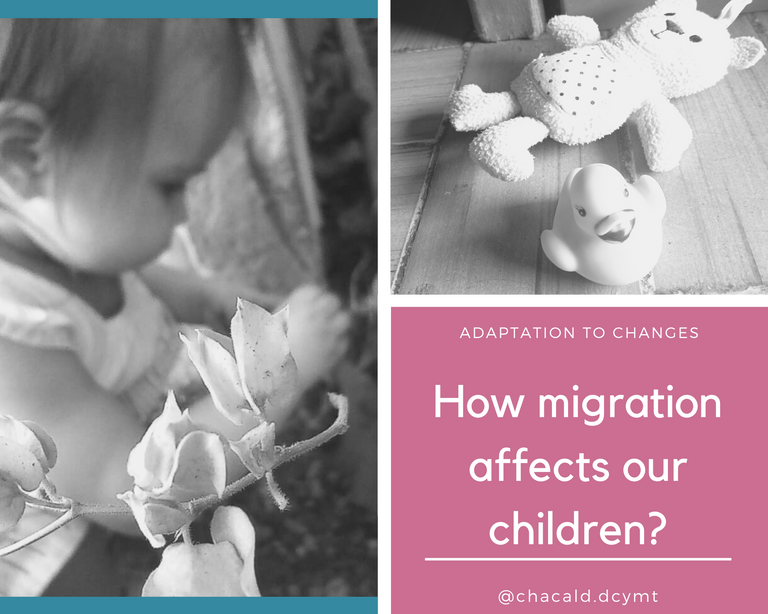
Three months ago my husband and I decided to move to Venezuela, my country, from Cuba where we had been living together for 5 years and where our little daughter was born. On January 20th I traveled alone with the 16 month old baby and he had to stay for work reasons. By that time the girl was already showing some alterations in her usual behavior, because we left the house on January 8th and stayed in Havana during all those days while we made the arrangements for the trip.

When she arrived in my country, the child began to have an irritable behavior, for anything that she was denied or that was finished, her reaction was of anger. She presented loss of appetite, she had never refused any food, on the contrary she liked to eat everything, the pediatrician always told me that I was a lucky mother for not having those problems with the feeding of the child. She began to sleep more than usual, she took long naps in the morning and in the afternoon, she spent more time asleep than awake.
All this was worrying my mom and me a lot, as we were the ones in charge of the child. Especially the lack of appetite.

The pediatrician told us that this is the migratory grief, many times we hear the word grief and we immediately think of death, but it is not like that, grief is synonymous with loss and when we go through the migration process we must adapt to the changes. In my baby's case, she missed her father very much, who had not been separated from her since she was born, since he had asked for a leave of absence from his job to take care of both of us, and until that moment she only lived with her father and mother at home, which was causing all these alterations.
When her father arrived in Venezuela and we were able to meet at home, that was 15 days ago, the girl rejected him, cried when he approached her and could not even be in the same room with him. She looked excited because her dad was at home but from far away. The good thing was that she started eating again and stopped having these episodes of anger. Little by little she has been coming closer to play with her daddy, sing and fall asleep with him like months ago.

Investigating a little further than what the pediatrician told us, I found that UNICEF has established medical checkpoints in the most important migratory routes to provide psychological care to children and adolescents who are going through a migratory process, either alone, in families or also children who must stay with a caregiver while their parents migrate. It is important that we are attentive to our little ones, if we know of any case we should go to a pediatrician to refer the child to a child psychologist who can help him/her to overcome this process.
We cannot let our children get lost in this process of adaptation. My recommendation is that if the family is going through a migration or is planning to do so, do not forget the children, take into account their feelings and emotions and babies who cannot express what they feel require special attention. Let's think that if it is difficult for us as adults for the children it must also be difficult for all these radical changes. I hope you like my publication and the debate is open in the comments. Greetings and see you next time.


Original content by the author.
Resources: App: Canva / Giphy || 📷 Redmi 10 Smartphone
Translation done with Deepl.com
✿ All Rights Reserved || © @chacald.dcymt // 2020-2022 ✿
💌 Discord: chacald.dcymt#3549
_
Contenido original del autor.
Recursos: App: Canva / Giphy || 📷 Redmi 10 Smartphone
Traducido con Deepl.com
✿ Todos los Derechos Reservados || © @chacald.dcymt // 2020-2022 ✿
💌 Discord: chacald.dcymt#3549